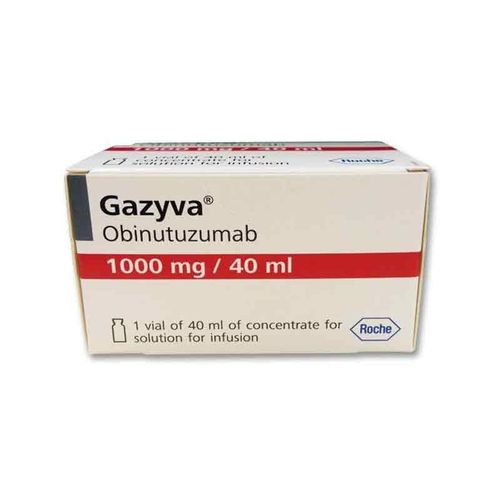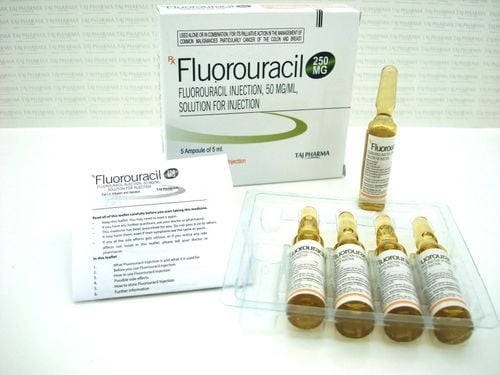This is an automatically translated article.
The content is professionally consulted by Master, Doctor Nguyen Manh Ha, Doctor of Radiation Therapy, Center for Oncology - Radiation Therapy - Vinmec Times City International HospitalHereditary cancer is the result of one or more inherited mutations in genes whose normal function is to prevent tumor formation in the body. Inherited mutations increase an individual's risk of one or more types of cancer and are passed on from parents to children. So are breast and ovarian cancers hereditary?
1. Are breast and ovarian cancers hereditary?
BRCA1 and BRCA2 are the two most common genes that increase the risk of breast and ovarian cancer.
Women who carry a genetic mutation in either of these genes have a much higher risk of developing breast, ovarian, and other cancers than the general population.
Men with mutations in the BRCA gene have a higher risk of developing male breast and prostate cancer. Both men and women carry mutations in the BRCA gene that increase the risk of pancreatic and skin cancer.
2. Who is at hereditary risk of breast and ovarian cancer?
Doctor Nguyen Manh Ha said, the diagnosis of hereditary breast and ovarian cancer is considered when the family has a history of breast cancer or ovarian cancer. The following situations increase the likelihood of breast cancer and ovarian cancer running in the family, including:One or more women diagnosed with cancer before age 45: One or more women diagnosed with breast cancer breast cancer before age 50 and a family history of cancer, such as prostate cancer, melanoma (melanoma), and pancreatic cancer. There are many generations in the family, on the same paternal or maternal side, with breast cancer or ovarian cancer. A woman has a second breast cancer (on the same or different side of the previous breast) or has both breast and ovarian cancer. A male relative has breast cancer. Having a family history of breast cancer, ovarian cancer, prostate cancer, or pancreatic cancer. Has Ashkenazi Jewish ancestry. Most cases of breast cancer and ovarian cancer occur individually, which means they happen by chance with no known cause.
Currently, it is estimated that less than 1% of the population has a mutation in the BRCA1 or BRCA2 gene, and that about 10% of women and 20% of men with breast cancer have mutations in either of these genes. About 10-30% of women under age 60 with “triple-negative” breast cancer (without estrogen, progesterone, and HER2 receptors) have mutations in the BRCA1, BRCA2 genes. Therefore, doctors recommend that women with triple-negative breast cancer receive genetic counseling and genetic testing.
Inherited breast and ovarian cancer is most common in families where many members have breast cancer and/or ovarian cancer on the same paternal or maternal side.
In families with more than 4 people diagnosed with breast cancer before age 60, the chance of hereditary breast and ovarian cancer is about 80%. For comparison, the odds of finding hereditary breast and ovarian cancer when only 1 woman has breast cancer before the age of 50 is estimated to be less than 10%.

Những nguyên nhân nào tạo nên sự di truyền trong ung thư?
3. Who should get tested for hereditary breast and ovarian cancer?
Most breast and ovarian cancers occur randomly with no known cause, so testing for mutations in the BRCA1 or BRCA2 genes is not beneficial in common situations.Genetic testing is recommended mainly for people with a personal or family history of hereditary breast and ovarian cancer. However, women under age 60 with triple-negative breast cancer are at increased risk for BRCA mutations, regardless of family history.
The US National Comprehensive Cancer Network (NCCN) makes recommendations for genetic counseling and genetic testing for women who have been diagnosed with or have a family history of breast cancer, breast cancer, or breast cancer. ovarian letter.
Currently, Vinmec International General Hospital is the first medical facility in Vietnam capable of implementing cancer screening by combining 4 technologies: genetic testing, endoscopy, ultrasound and laboratory testing. immunity. In particular, cancer screening with genetic technology is a method that is considered a breakthrough in medicine.
Early screening is considered the "golden key" to detect and provide prevention methods, reduce the risk of death and costs for patients. Due to late detection (70% of patients are treated when they are at the end stage), the death rate from cancer in Vietnam is very high.
Please dial HOTLINE for more information or register for an appointment HERE. Download MyVinmec app to make appointments faster and to manage your bookings easily.













